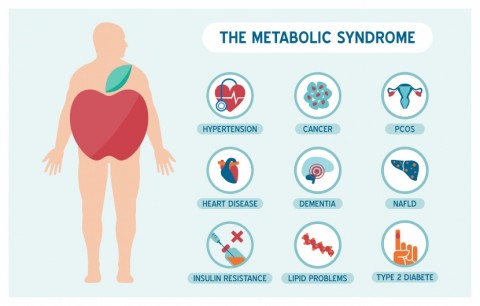DrCarney.com Blog
High dietary ingestion of foods high in vitamin K may cut down the risk of developing metabolic syndrome in young adults.
Adequate intake of phylloquinones (vitamin K) from food sources may help guard against the development of metabolic syndrome
Increased consumption of 100% unprocessed fruit juice may protect individuals against obesity and metabolic syndrome.
A decline in metabolic syndrome risk is associated with frequent consumption of diets rich in plant foods with high fiber content.
More than 75 billion dollars worth of soda is purchased yearly. Sugar-sweetened drinks not only drain the pockets of millions of Americans, but these beverages are a drain on the health of the nation as well. Heavy consumption of sugary beverages, such as soft drinks, fruit drinks, vitamin water drinks, and energy drinks, has been l...
Regular drinking of sugar-sweetened beverages (SSB), such as soft drinks, fruit drinks, iced tea, energy drinks, and vitamin water drinks, may increase an individual's susceptibility to type 2 diabetes and metabolic syndrome.
Regular consumption of magnesium-rich foods, such as legumes, whole grains, and green vegetables, may cut down metabolic syndrome risk in older Americans.
Generous intake of diets high in whole grains may significantly cut down metabolic syndrome risk.
Metabolic syndrome is a term often mentioned these days when public health is discussed. We hear about it on the news and see it mentioned in blogs and articles. But have you ever wondered, "Exactly what is metabolic syndrome?" You're not alone. By definition, a syndrome is a rather slippery thing. It doesn't exactly fit...
The phrase "resistance is futile" entered the pop-culture lexicon in 1989 when The Borg appeared on an episode of Star Trek: The Next Generation. The show's creators probably had no idea that somewhere in a laboratory in England, scientists were making bold, new discoveries about how simple foods battle the diseases threatening the health of...






